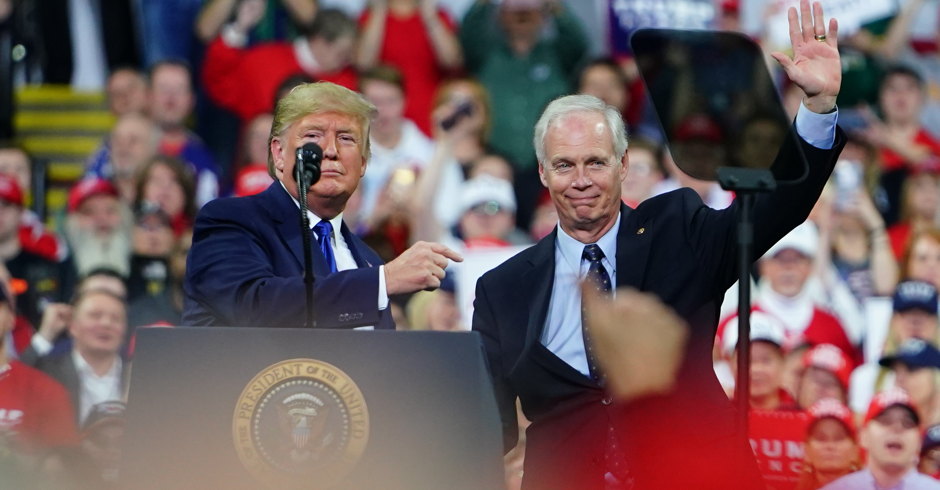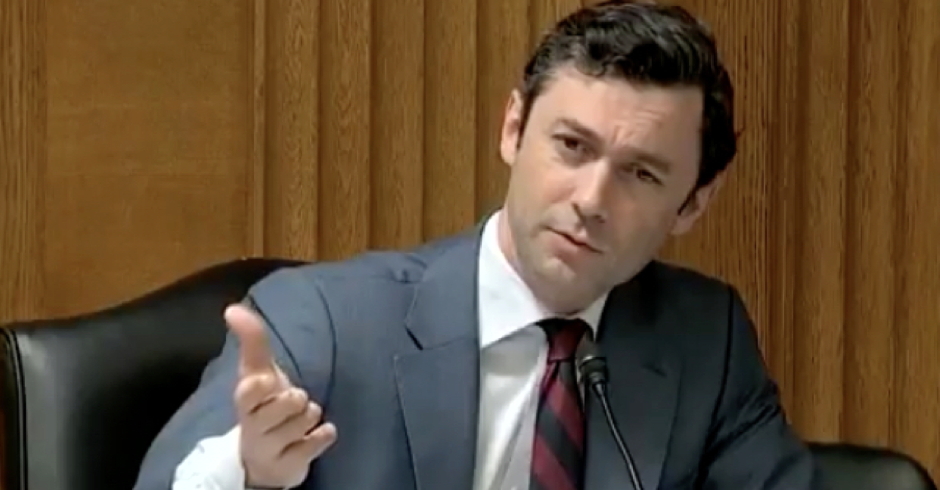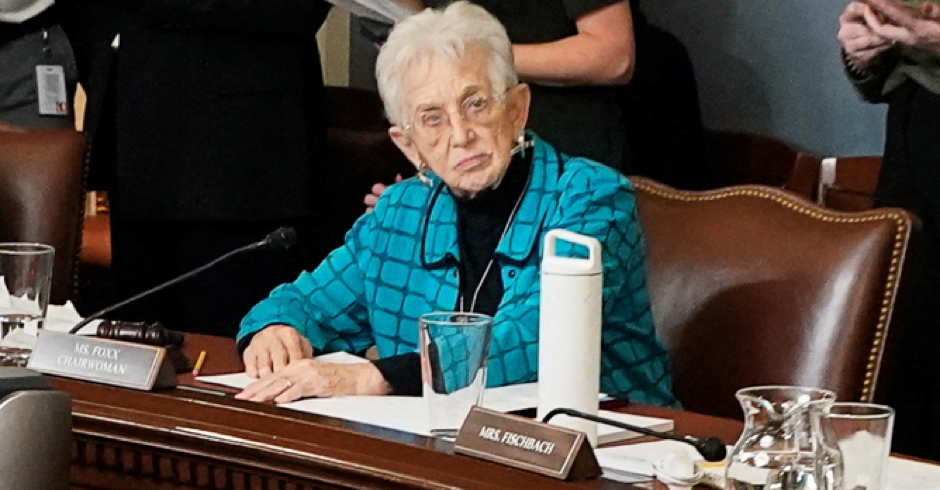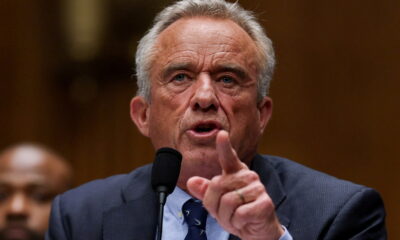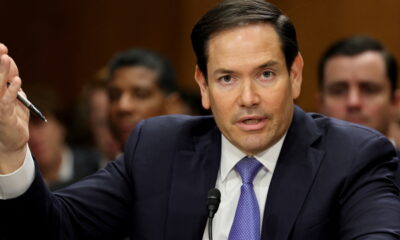Saying Gay: Help A 17-Year Old Make This Film – Or He Won’t Be Able To
Editor’s note: This guest post is by Devon Hicks, a 17-year old activist living in Knoxville, Tennessee.
For the past six years, Republican Senator Stacey Campfield has been working on a bill that would ban any mention of homosexuality in Tennessee Schools in grades K-8. The “Don’t Say Gay” bill, pitched as a way to keep discussions age appropriate and give parents the power to educate their children on social issues, has a seemingly reasonable foundation. Yet the “side-effects†of the bill are the main concern of many. First and foremost, it establishes homosexuality as a taboo subject — and things that we can’t talk about are normally bad, right? (This is a belief held especially among younger children.) This means that students who may themselves be part of the LGBTQ community, or who perhaps have gay relatives will most likely feel like even more like outsiders. The “Don’t Say Gay” bill also would make it hard for teachers and counselors to address the topic of LGBTQ bullying. And sadly, it almost appears that it is Senator Campfield’s belief that if you don’t talk about gays, maybe they will cease to exist. The bill in its current form bans “any discussion that deviates from normal human reproduction science.” Titled SB49, the “Don’t Say Gay” bill passed the Tennessee Senate 19 to 11 on May 20, and will now go to the House for a vote in January 2012.
Many of the young people who would be effected by SB49 find themselves in very delicate situations. They are at a point in their lives where they are figuring out who they are, and quite often aren’t sure where to turn. They are worried that their parents might not accept them, that their friends may disown them, and maybe even that there may be something wrong with them. Hopefully they’re lucky enough to have friends and family that are supportive, but those that don’t often have to “go back in the closet†and/or face constant bullying and harassment at the hands of relatives and their peers. As we’ve seen in the news, this leads to depression, self harm, and in some cases those affected choose to take their own lives. These young people need a voice, they need support, and more than anything, they need to feel safe.
Over the past three months I’ve been blessed enough to become part of the Tennessee Equality Project Foundation (TEPF). I started a campaign titled “It’s OK To Say Gay*,” which is an effort to raise awareness and provide ways to fight bullying and intolerance in Tennessee schools. TEPF folded it into their organization.
We held a rally to give people a view of our objectives and to identify volunteers, but the rally also was an effort to provide the voice that I spoke of to some of the immediate area’s LGBTQ teens. For this reason,we provided three high school students (all of which identified as homosexual) with the opportunity to share their experiences, and the result was inspirational. Their stories were met with thunderous applause, tears, and a roomful of supportive energy. Those three students “struck a cord,” and moved people more than anything else at the rally.
In the aftermath of the rally, we had a notable amount of media attention, and I had the pleasure of joining George Takei on a new online CBS show called, “What’s Trending.” As I sat waiting for my Skype video line to be pushed live, I received a view into the world of a live production room, and it spiked my nerdy interest. Over the next few days, I kept thinking back to the rally, and to the news interviews and realized that, if people could just see the pain caused by legislation like SB49, the “Don’t Say Gay” bill, maybe people would be more sympathetic.
It had been my goal from the start to stream most of our events live online, but I realized that was not enough. People didn’t need a collection of YouTube videos or a bit of media coverage, they needed a dedicated view into the lives of the Tennessee gay community and the effect SB49 will have on it. They need to see that our LGBTQ students are bullied heavily (and that it’s a problem for straight students too.) The LGBTQ community needs a voice, and with only six months until the House votes on SB49, they need it fast. With all of this in mind, I realized that the answer was a documentary.
I spent several days running over the logistics. What would we call it? What exactly would it contain? What kind of gear would be needed? I didn’t doubt my creative or technical abilities, and I came to discover a large filmmaking community ready to assist me. I then realized that I needed to be able to completely dedicate myself to working on the film, and that was going to be an expense as well.
On May 29 I launched a Kickstarter campaign for “Saying Gay: A documentary about SB49.” The goal is straightforward: provide a view into how SB49, the “Don’t Say Gay” bill, will affect our students and their families and raise awareness about bullying in schools. We will bring students, parents, teachers, lawyers, lawmakers, and therapists in front of the camera in order for them to share their experiences and their analysis. “Saying Gay” will not just be a documentary, it will be a living, breathing thing. As I travel across Tennessee, I’ll film hundreds of people explaing why they think “it’s okay to say gay,” and feature them on our website alongside other extended content. Public screenings will double as discussion forums, and in the process I will be forming “Equality Reel,” a video production company that will focus on developing content for the LGBT community.
In order to fund approximately $13,000 worth in equipment, plus travel, and the ability to work full-time on the film, I set the goal of raising $25,000; and now I’m turning to the community for help.
Every day, students around the country find themselves being verbally and physically assaulted because they are different, and the last thing we need is legislation that makes that even more possible. I want to give a voice to all of those who right now are afraid, and I hope you can help with that. For the cost of a cup of coffee, you can help make a difference and end intolerance.
Â
Â
Â
Â
 Devon Hicks is a 17-year old activist living in Knoxville, TN. He currently sits as the interim committee chair of the Tennessee Equality Project’s “Safe Schools Committee†and started the It’s OK To Say Gay Campaign, which has received national attention. After graduating and moving out at age 16, Devon began putting his love for design and technology to use, starting a small web design business which has now turned into a education and consulting firm for non-profits, showing them how they can use technology in their campaigns and daily management. Saying Gay, a documentary about SB49, will be Devon’s first film.
Devon Hicks is a 17-year old activist living in Knoxville, TN. He currently sits as the interim committee chair of the Tennessee Equality Project’s “Safe Schools Committee†and started the It’s OK To Say Gay Campaign, which has received national attention. After graduating and moving out at age 16, Devon began putting his love for design and technology to use, starting a small web design business which has now turned into a education and consulting firm for non-profits, showing them how they can use technology in their campaigns and daily management. Saying Gay, a documentary about SB49, will be Devon’s first film.

Enjoy this piece?
… then let us make a small request. The New Civil Rights Movement depends on readers like you to meet our ongoing expenses and continue producing quality progressive journalism. Three Silicon Valley giants consume 70 percent of all online advertising dollars, so we need your help to continue doing what we do.
NCRM is independent. You won’t find mainstream media bias here. From unflinching coverage of religious extremism, to spotlighting efforts to roll back our rights, NCRM continues to speak truth to power. America needs independent voices like NCRM to be sure no one is forgotten.
Every reader contribution, whatever the amount, makes a tremendous difference. Help ensure NCRM remains independent long into the future. Support progressive journalism with a one-time contribution to NCRM, or click here to become a subscriber. Thank you. Click here to donate by check.
 |
